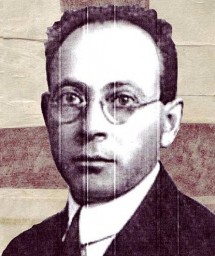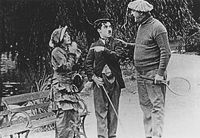Married Life

(By David Vogel) (1929 – translated by Dalya Bilu)
Mr Rudolf Gurdweill is a struggling writer, small, slight, jewish, vacant and rather nice. He shambles through life, borrowing small sums of money and taking aimless, unsatisfying excursions about 1920s Vienna. His friends in Nescafe Society are the kind that obviate the need for enemies. Naturally he decides, on impulse, to marry a ‘Baroness’, the type of union that gives holy matrimony a bad name. His friend Lotte Bondheim, who carries a doomed torch for Gurdweill secret only to Gurdweill, is hysterical at the news:
‘”Oh, no,” she cried, “it’s too ridiculous for words! I’ve never heard anything so grotesque in my life! Little Gurdweill is going to marry a Baroness! A big, blonde Baroness! Ha ha ha! A little baron! One day he’ll start a pogrom against us!“‘
Full of marginal types and folks on the make, it’s a sort of opera buffa without music, plus a dash of Stefan Zweig and a sprig of Franz Kafka. Vogel’s prose is a pleasure, clear, free of tricks or lumpiness:
“He saw that [Ulrich’s] chin was cleft as usual, cleft with a kind of self-important smugness, and that his black and white striped tie was impeccably tied and lay right in the middle of his chest as if fixed there with invisible nails.”
He is stuck in a purgatorial office job with a bumptious boss that he longs to strangle, and did we mention Gurdweill’s married life was situated somewhere in the 9th circle of hell?….
“Before he knew what was happening, a stinging slap landed on his left cheek. Sparks shot from his eyes and his head felt as if it were being uprooted from his body. For a moment he thought that the house was collapsing and the ceiling was crashing on to his head. The precise location of the pain was not yet clear to him. All this took no more than a few seconds. Then he felt a distinct burning on his left cheek and saw Thea, as if through a fog, walking to the door and going out. For a while he went on looking at the door through which his wife had disappeared.”
Vogel paints a vivid picture of Vienna, with its coat of imperial varnish chipping away, yet before the ravages of the war to come. In between the limpid prose are nice surreal flourishes: “In the passage the tap woke up with a roar“, “Weak sunrays filtered through the clouds for a moment, and touched the keys of the grand piano in the corner without making a sound“, “In the shaft of light from the streetlamp the snowflakes, which were much lighter than before, looked as if they were flying upward.”
Gurdweill discovers that a child may not save a marriage but it can save a life. For a time. He is trapped in a cage of his own device and can’t even summon the will to flail at the bars. Thea meanwhile puts it about and who can blame her, married to a maudlin dreamer that she despises? Her depravity in the novel strays close to Over-the-Top, but it is so well done as to convince. A warning against negligent matrimony, the book hurtles towards a conclusion that is awful and curiously satisfying. A very good work indeed from a man out of place and time (he was imprisoned during both world wars as an illegal alien, and died in Auschwitz).
Leave a comment...
While your email address is required to post a comment, it will NOT be published.



1 Comment